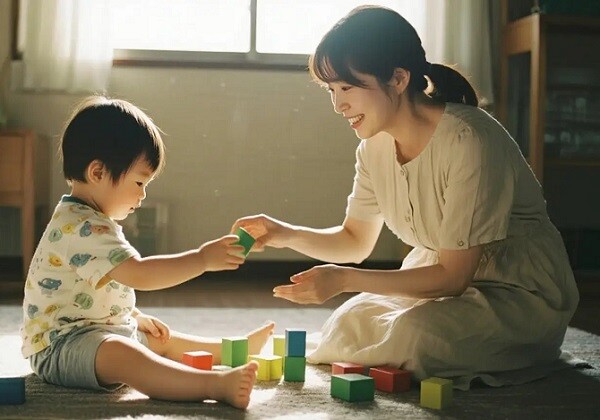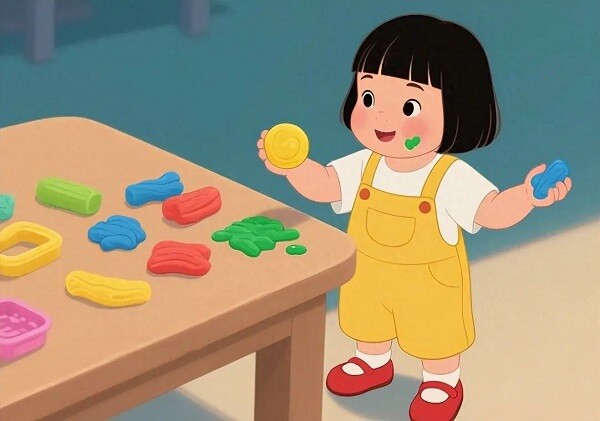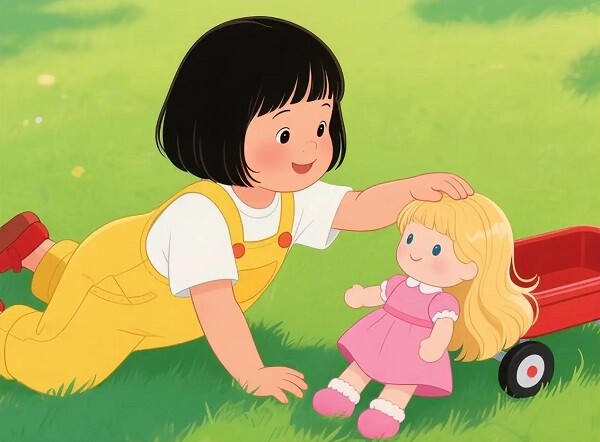Social skills in children can indeed be nurtured over time through simple and practical daily skills. There are effective methods to foster their social skills effectively.


Start by modeling to help children learn to express their emotions
Infants’ social skills primarily stem from understanding and imitating emotional expressions. In daily life, they learn to interact with others by observing facial expressions and behaviors.
For instance, when parents greet friends with a smile, eye contact, and warm words, infants will imitate these behaviors and gradually learn to greet others with a smile.
As they begin to understand these simple emotional cues, they become more adept at interacting with strangers. Through repeated imitation, their ability to express emotions is strengthened.
Additionally, participating in group activities, such as playing with peers or engaging in interactive games, is crucial for social skill development. These activities allow children to practice what they’ve learned and explore and understand their emotions and those of others.
Parents and adults should create an encouraging environment where children feel safe to express themselves. With acceptance and encouragement from their parents, children will be more confident in exploring and developing their social skills, thereby building positive and lasting relationships in their lives.

Foster a sense of sharing and teach collaboration
Another essential skill is teaching children to share. Often, social communication difficulties in children stem from excessive possessiveness, which can lead to reluctance in sharing toys with peers and causing conflicts. To prevent this, parents can start playing sharing games with their children at home.
Whenever you play together, whether it’s with puzzles or building blocks, guide your child to pass objects to you or work together to complete a task. This way, they gradually understand the value of collaboration and sharing, and when faced with similar situations in preschool, they will naturally play with their peers.
Additionally, organizing playdates with friends provides a practical social context for practicing sharing. It not only enhances their communication skills but also creates memorable experiences with their friends.
Fostering a sense of sharing lays the foundation for positive relationships in the future. A child who knows how to share will find it easier to make friends and fit in with their community.


Provide appropriate social interaction opportunities for children to engage with peers
Peer interaction is essential for the development of children’s social skills. In the early years, mothers should take their children to small gatherings or family-oriented activities.
During these occasions, children have the chance to play with their peers while parents observe and offer appropriate encouragement and guidance.
For example, during an activity, a mother might encourage her child to play a “pass the ball” game with friends, promoting friendly interactions and inviting others to join.
This helps children feel joyful while playing and boosts their confidence in communicating with their peers in a group setting. These positive social experiences in the early years lay a solid foundation for their personal and social development in the future.


Respect emotional changes and avoid forcing social interactions
At times, infants may hesitate to interact with others due to specific emotions, such as stranger anxiety or discomfort in certain social situations.
In such cases, parents should respect their child’s emotions instead of forcing social interactions. By listening to their needs and offering timely comfort and encouragement, parents can help them overcome their worries.
Infants’ social skills stem from careful nurturing.
From these daily tips, we understand that infants’ social skills are not innate but gradually developed through daily guidance and practice.
Whether it’s through emotional expression, sharing and collaboration, or providing social interaction opportunities, parents should help children improve their confidence and interaction skills in a comfortable and joyful environment.
Additionally, parents need not worry about their child’s social communication abilities. With patience, guidance, and suitable opportunities, children will unconsciously learn how to interact and become more confident.




































